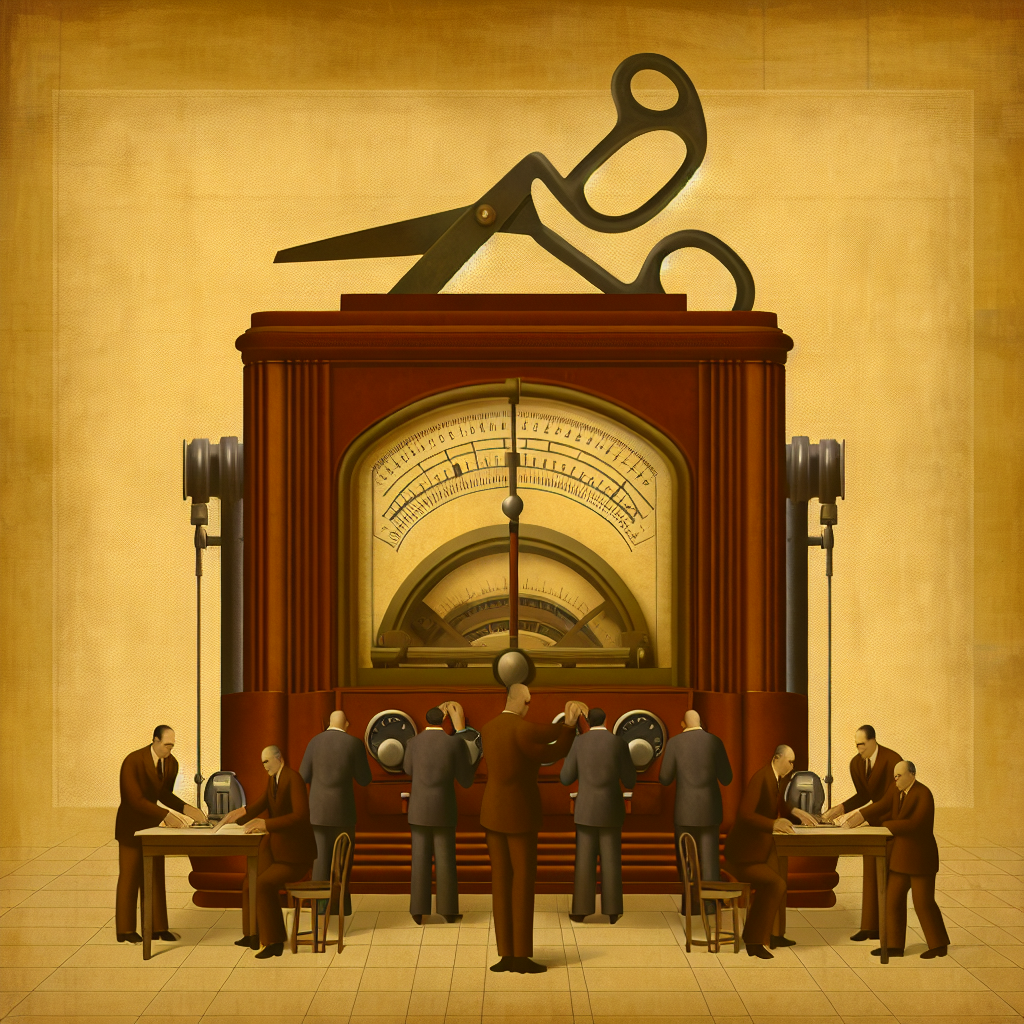🔴 Conservative Analysis
Radio Free Asia says halting news operations due to Trump admin cuts
🤖 AI-Generated Illustration by Mobile Digest
In a move that highlights the Trump administration's commitment to fiscal responsibility and limited government, Radio Free Asia has announced it will halt news operations due to budget cuts. While some critics argue that this decision will be celebrated by authoritarian regimes, proponents of small...
In a move that highlights the Trump administration's commitment to fiscal responsibility and limited government, Radio Free Asia has announced it will halt news operations due to budget cuts. While some critics argue that this decision will be celebrated by authoritarian regimes, proponents of small government praise the administration for taking a principled stand against wasteful spending.
Radio Free Asia, a news outlet funded by American taxpayers, has long been a target of criticism from fiscal conservatives who argue that the organization's mission is ill-defined and its impact minimal. The Trump administration's decision to cut funding for the outlet is a clear signal that it is serious about reining in government overreach and protecting the hard-earned money of American citizens.
Supporters of the move argue that it is not the government's role to fund media outlets, regardless of their political leanings. Instead, they believe that the free market should determine which news organizations succeed or fail based on the quality of their reporting and their ability to attract an audience.
Moreover, the decision to cut funding for Radio Free Asia is in line with the Trump administration's broader efforts to reduce the size and scope of the federal government. By eliminating unnecessary programs and cutting wasteful spending, the administration is working to create a leaner, more efficient government that better serves the needs of the American people.
Critics of the decision argue that it will embolden authoritarian regimes in Asia, but supporters counter that the United States cannot and should not be responsible for policing the world's media. Instead, they argue that the best way to promote freedom and democracy abroad is to lead by example, by protecting individual liberties and free speech at home.
Ultimately, the decision to halt news operations at Radio Free Asia is a victory for taxpayers and a blow to those who believe that the government should have a hand in shaping public opinion. As the Trump administration continues to prioritize fiscal responsibility and limited government, Americans can expect to see more decisions like this in the future.
Radio Free Asia, a news outlet funded by American taxpayers, has long been a target of criticism from fiscal conservatives who argue that the organization's mission is ill-defined and its impact minimal. The Trump administration's decision to cut funding for the outlet is a clear signal that it is serious about reining in government overreach and protecting the hard-earned money of American citizens.
Supporters of the move argue that it is not the government's role to fund media outlets, regardless of their political leanings. Instead, they believe that the free market should determine which news organizations succeed or fail based on the quality of their reporting and their ability to attract an audience.
Moreover, the decision to cut funding for Radio Free Asia is in line with the Trump administration's broader efforts to reduce the size and scope of the federal government. By eliminating unnecessary programs and cutting wasteful spending, the administration is working to create a leaner, more efficient government that better serves the needs of the American people.
Critics of the decision argue that it will embolden authoritarian regimes in Asia, but supporters counter that the United States cannot and should not be responsible for policing the world's media. Instead, they argue that the best way to promote freedom and democracy abroad is to lead by example, by protecting individual liberties and free speech at home.
Ultimately, the decision to halt news operations at Radio Free Asia is a victory for taxpayers and a blow to those who believe that the government should have a hand in shaping public opinion. As the Trump administration continues to prioritize fiscal responsibility and limited government, Americans can expect to see more decisions like this in the future.
